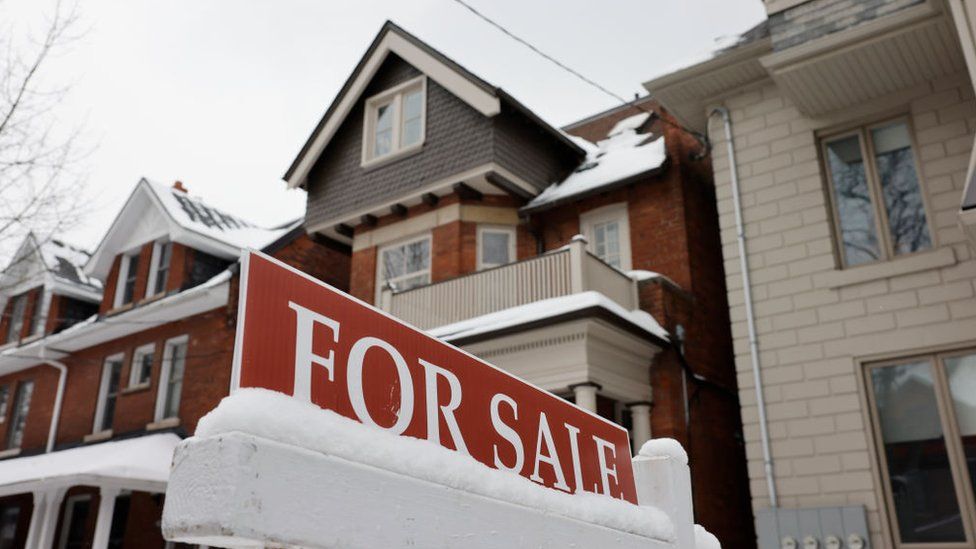ARTICLE AD BOX
 Image source, Getty Images
Image source, Getty Images
The average value of a Canadian home has more than doubled since 2011
Household debt in Canada is now the highest of any other G7 country, according to data by the country's housing agency.
The amount owed by Canadian households is also higher than the country's entire GDP.
The Canada Mortgage and Housing Corporation said high home prices are to blame for the ballooning debt.
Household debt in the US and the UK, by comparison, has shrunk in the last 10 years.
In a report released on Tuesday, Canada's housing agency has warned that Canadians would not be able to weather a recession because of the high amount of debt they owe.
"Unfortunately, Canada's very high levels of household debt - and the highest in the G7 - makes the economy vulnerable to any global economic crisis," said Aled ab Iorwerth, the agency's deputy chief economist.
In his report, Mr ab Iorwerth said that 75% of Canada's household debt comes from mortgages. As home prices increase in Canada, the household debt in Canada rises as well.
"Longer term, re-establishing housing affordability in Canada will be key to reducing household debt if they want to become homeowners," Mr ab Iorwerth said.
The average home price in Canada is C$716,083 ($528,000; £426,000, according to the Canada Real Estate Association, though homes in Canada's most populous city Toronto average about C$1.15m.
Home prices are the highest in Vancouver, British Columbia, where the average price tag for a property is around C$1.29m.
Both Toronto and Vancouver consistently rank among the top 10 most unaffordable cities in the world.
The average value of a Canadian home has more than doubled since 2011, when houses were valued at around C$352,000.
As of 2021, Canada's household debt is 7% higher than the country's entire GDP. This is an increase from 2010, when household debt was about 5% lower than Canada's GDP.
By comparison, household debt in the US fell from 100% of the country's GDP in 2008 to about 75% in 2021. The UK's household debt as a share of its GDP also fell from 94% in 2010 to 86% in 2021.
"While US households reduced debt, Canadians increased theirs and this will likely continue to increase unless we address affordability in the housing market," Mr ab Iorwerth said.
Among major Western nations, only Australia has a higher household debt rate as a share of its GDP (119%).
Canada's government has been under pressure to address the growing issue of housing unaffordability. Earlier this year, Canada enacted a two-year ban on foreigners buying homes in the country in an attempt to ease unaffordability.
Some have also called on officials to enact measures that will increase Canada's housing supply, as the country's population has grown by a record of more than a million people in 2022.
Why it takes 30 years to buy a house in Canada

 2 years ago
89
2 years ago
89








 English (US) ·
English (US) ·